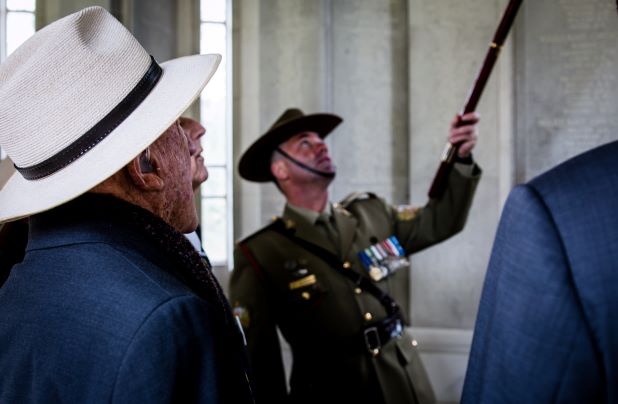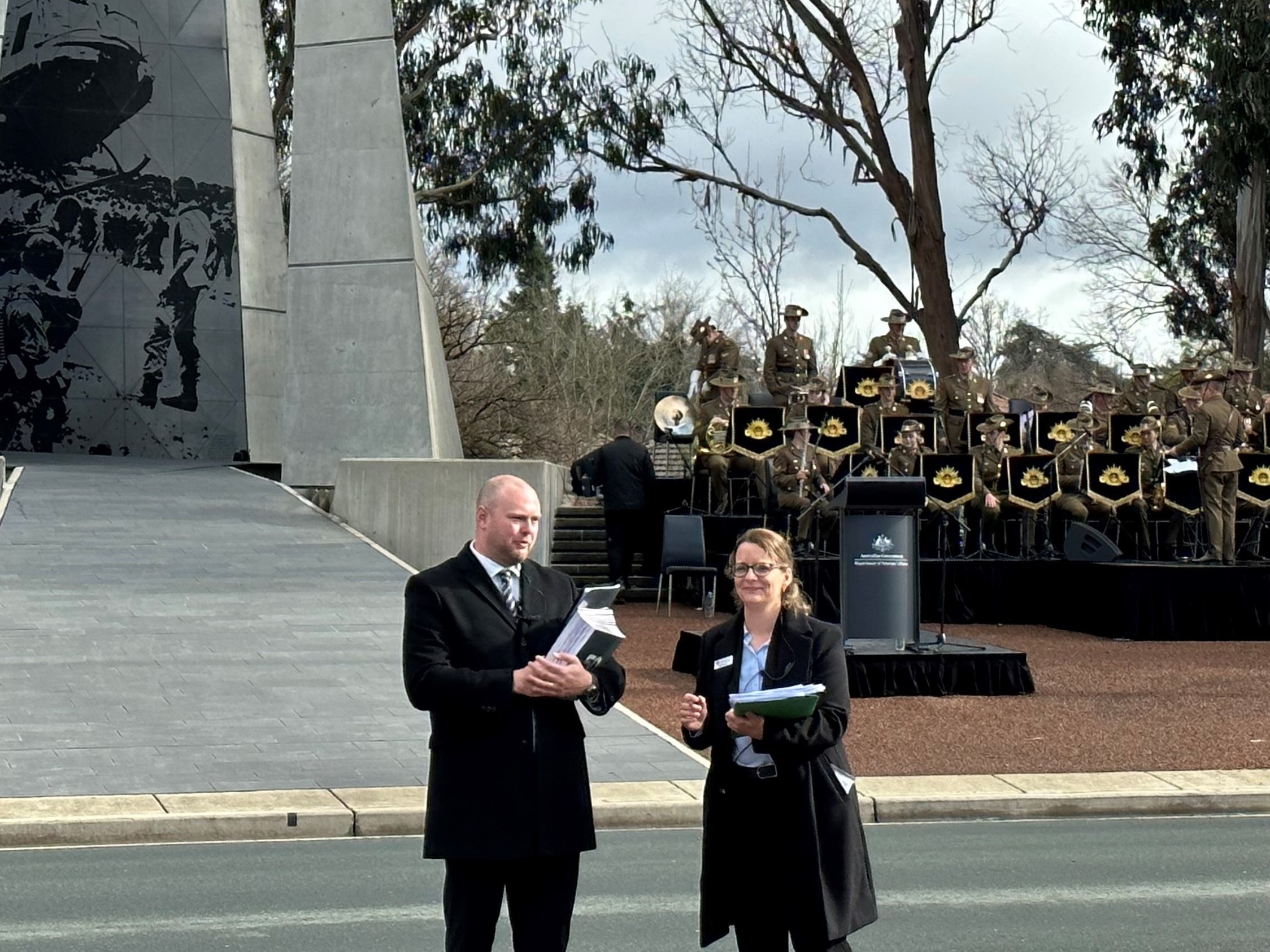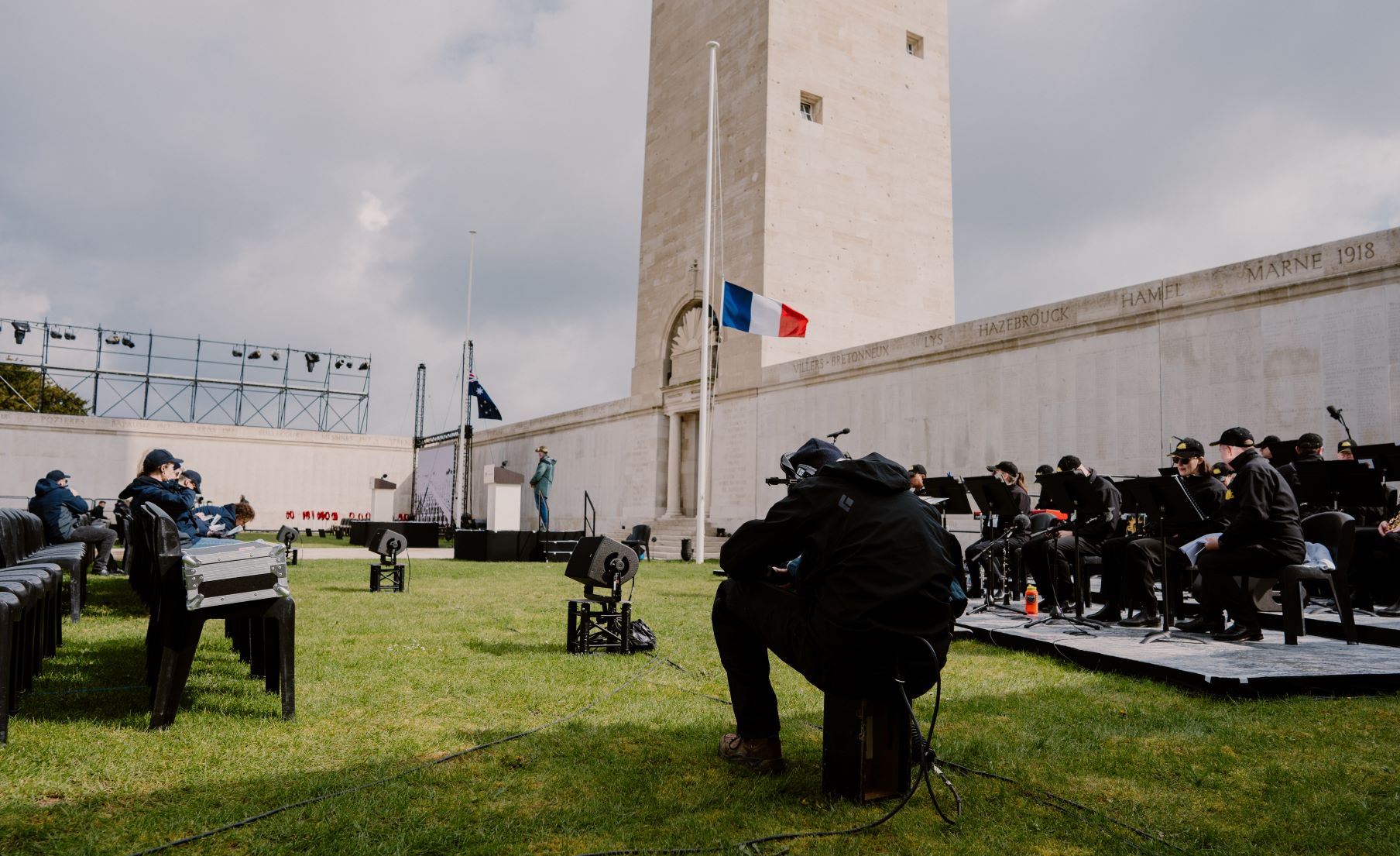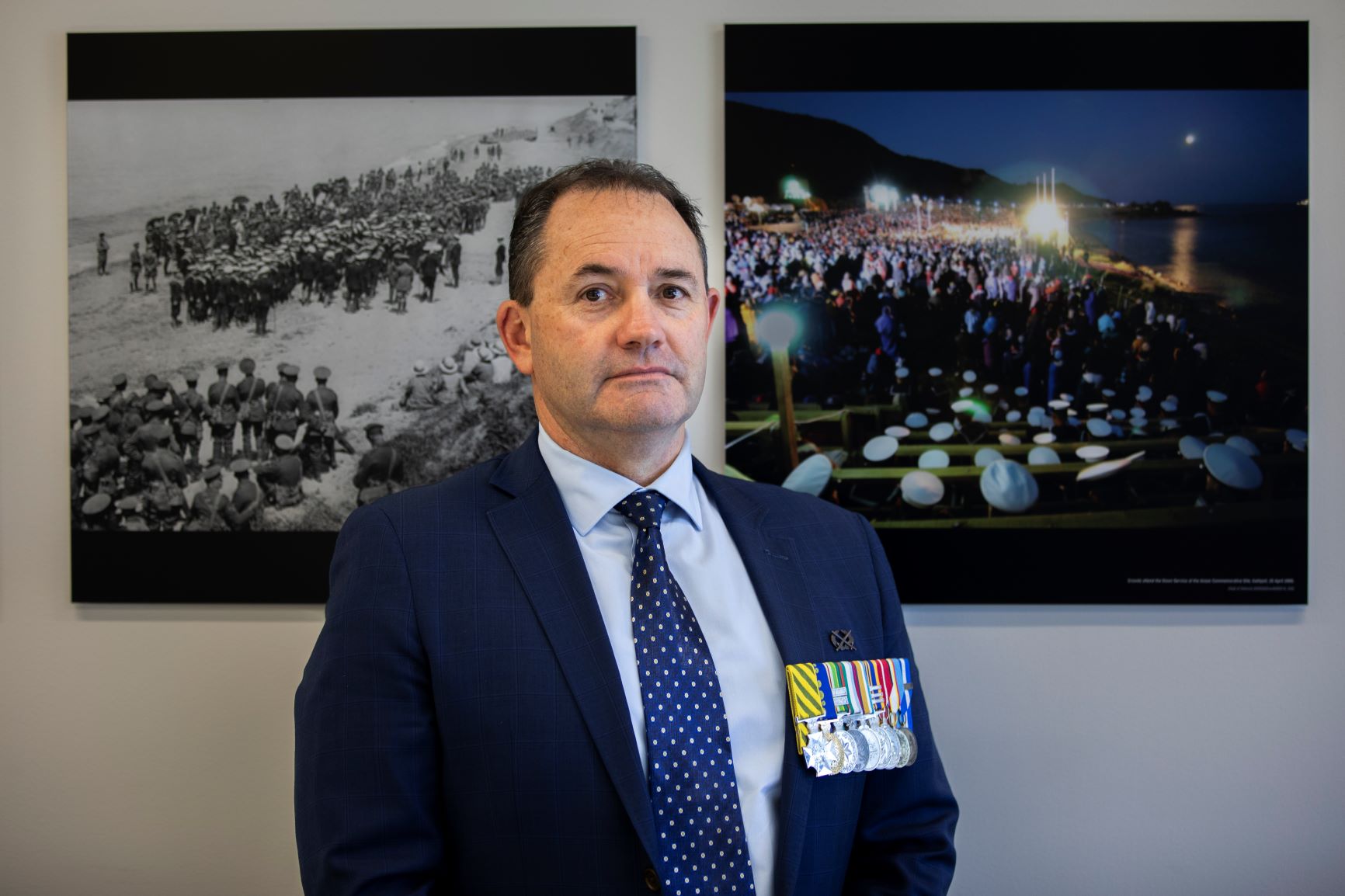
An important part of DVA’s role is to acknowledge and commemorate all those who have served Australia and its allies in wars, conflicts and peace operations.
Commemorative events raise community awareness and understanding of the service and sacrifice of our military personnel and families, and promote improved veteran wellbeing outcomes through recognition and respect.
‘For a veteran, it’s about remembering those you tragically lost, those you served with, engaging with the families, and an opportunity to reflect on what you did as an individual, a unit and most importantly with your mates,’ says Paul Richardson CSC OAM, Director of Commemorative Events at DVA. ‘It goes towards making veterans feel proud about their service. And it’s an education process – making the younger generation aware of what these veterans did for us.’
A veteran himself (see side story), Paul heads up three small teams in the department’s Commemorations Branch that are responsible for organising the annual Anzac Day services in Gallipoli, Türkiye, and Villers-Bretonneux, France as well as significant domestic commemorations in Australia as directed by the Government.
He says the two major challenges in delivering appropriate commemorations are the logistics and getting the narrative right. Paul takes as an example the National Commemorative Service marking the 50th anniversary of the end of Australia’s involvement in the Vietnam War, which took place on 18 August in Canberra.

‘The key for us to get that right was to listen to those who served in Vietnam,’ Paul says. ‘The hard part was telling their story appropriately and accurately – not just the Army but the Navy and Air Force as well as National Servicemen, civilians, nurses, Aboriginal and Torres Strait Islander people, and families.
‘Families are that critical link. They were stuck at home, not knowing what’s going on. The Vietnam War became unpopular. All of that was a pretty difficult dynamic for a family member to take on. There were some people who never met their fathers because they were tragically killed. Others came back drastically different as a result of their service. Families were critical in helping them deal with what they had been through, and the families themselves can be affected by that.’
That’s why the DVA team ensured that both veterans and families were directly involved in the National Commemorative Service. In particular the descendants, widows and other relatives of some of the 523 personnel killed.
Paul’s teams start planning for events like Anzac Day about six months out from 25 April. But for the 50th anniversary of the Vietnam War, planning began in 2021.
‘Apart from developing the commemorative medallion and certificate, the main reason was engagement,’ Paul says. ‘We met with a Vietnam Consultative Committee every couple of months, where we asked their views on every aspect of the service. We have a unique linkage with the ex-service organisations who represent the 35,000 surviving Vietnam veterans. We relied on them to filter information through to their members. Then when it got closer to the event, we broadened our reach to those unit level associations and that was to make sure that they were aware what was going on. Talking to Vietnam veterans was important to ensure that we understood how they felt our preparations would be viewed by Vietnam veterans.’

Paul’s team also worked very closely with the ABC on the live broadcast and to produce three episodes of the documentary Our Vietnam War telling the broad story of Australians' experience of the Vietnam War.
A big focus of the commemorative program was ensuring that the service and sacrifice of all Vietnam veterans was acknowledged, regardless of their role or the duration of their tour.
‘Even though it was a memorial service, we wanted to thank those veterans for their service and their contribution to society,’ Paul says. ‘And draw that link between the current Australian Defence Force and themselves. We introduced a general salute for the veterans, which I believe was well overdue and well received. We also went to great lengths to make sure all the associations were represented, where possible. Every one of them laid wreaths as that was considered to be essential by the veterans. We extended the service to accommodate that.
‘Because it’s not about what you did. It’s about acknowledging service and sacrifice equally. Everyone’s exposure and reaction is different. No matter where you served, you’re affected by the experience. Commemoration is what brings that all together.
‘The biggest lesson we learned was to listen. To find out what veterans wanted and expected. Being a veteran myself makes that easier because I still speak military-speak. There are some other veterans in the team too and that helps.’
His one regret about the service was that a flypast of two Vietnam-era Caribou transport planes and a Huey helicopter all flown by Vietnam veterans couldn’t go ahead due to poor weather. But otherwise Paul feels that it achieved exactly what it set out to.
‘Organising it was demanding but extremely rewarding for all of our team,’ he says. ‘I think it went a long way to making those veterans who felt their service had never been appropriately acknowledged, now has been.
‘But I appreciate that you can’t heal all old wounds and that tragically many Vietnam veterans still struggle as a result of their service. I have mates I have also served with who also struggle as a result of their service.
‘I can confidently speak on behalf of my team when I say that it was an absolute privilege to deliver these commemorations that honoured the service and sacrifice of all those who served during the Vietnam War, including those who tragically did not return.
‘The Vietnam era taught us that we need to continue to recognise veterans’ service and we must continue to support them and their families now and well into the future, particularly those who are struggling.’

Though just a handful of DVA staff planned the event, around 40 staff from elsewhere in the department turned up on the day to ensure things went smoothly. Paul’s team also relies on other staff to provide support in France and Türkiye.
Paul is hoping to get the Anzac Day host nations more involved in the future.
‘What we deliver is based on very traditional customs and protocols but we have to add contemporary elements to it,’ he says. ‘It would be great for instance if a Turkish teenager could take part in the pre-service activities at Gallipoli, giving their great-great-grandfather’s perspective of the campaign. Getting Australian and New Zealander kids involved would be great too, just to pass on that understanding.’
Paul has worked at DVA for six years and is extremely proud of what he and his team does.
Photos, top to bottom:
Paul Richardson guides a group of veterans through the Air Forces Memorial in London.
DVA’s Rory Walker and Elspeth Forster are ready for the start of the Vietnam War 50th anniversary commemorative service.
Crews conduct final rehearsals ahead of the Anzac Day 2023 service in Villiers-Bretonneux, France.
Paul Richardson, with Anzac Day services on Gallipoli, old & new, in background.